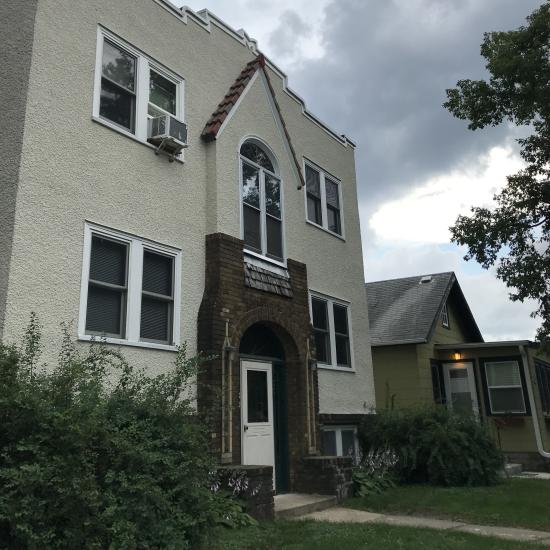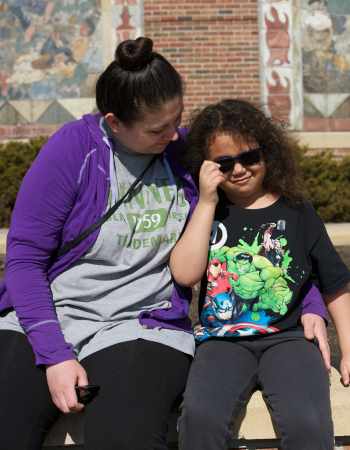Criminal Background’s Impact on Housing Success: What We Know (And What We Don’t)
Minnesota is currently in the midst of a housing crisis. The housing shortage presents unique challenges for disadvantaged populations who may encounter multiple barriers to obtaining safe, affordable, and stable housing.
Aeon, Beacon Interfaith Housing Collaborative, CommonBond Communities, and Project for Pride in Living are nonprofit organizations that provide multifamily affordable housing and supportive services in the Twin Cities area. They were interested in understanding how to reduce bias and unnecessary barriers for getting into their affordable housing. They also hoped that a more data-driven approach to criminal background screening in housing might create more opportunities for people to find housing and reduce homelessness in our community. The four organizations hired Wilder Research to study the relationship between their tenants’ criminal backgrounds and their success in housing. The study was intended to guide them in considering opportunities to open their housing to more people with criminal backgrounds, as they balance the needs of the larger tenant community.
Households included in the study
Wilder Research analyzed de-identified data from more than 10,500 households who resided in properties owned by the four nonprofit housing providers between 2010 and 2017. The data included the residents’ demographic characteristics, rent amounts, criminal backgrounds, and housing outcomes. Some households received a rental subsidy and their building had on-site services available to help them, so the study controlled for these supports.
Nearly 3 in 10 households in the study contained at least one adult with a prior criminal conviction, and these convictions varied from minor crimes, such as not paying train fare, to serious crimes, such as assault.
About 1 in 7 households in the study experienced a “negative housing outcome” as a reason for leaving their housing. Negative housing outcomes included lease violations, leaving without notice, and nonpayment of rent. This study examined the effects of criminal backgrounds and other household characteristics on the likelihood of these negative outcomes.
A few things we know from this study of 10,500 households in 4 nonprofit housing providers
-
Many factors (other than criminal background) contribute to a household’s success in housing. The likelihood of a negative housing outcome was significantly reduced in households with higher incomes, larger subsidies, two or more adults, one or more children, and older adults.
-
After controlling for other relevant factors, most types of prior criminal offenses do not significantly affect housing outcomes among these households. Of 15 categories of prior criminal offenses, 11 showed no evidence of a significant impact on the likelihood of a negative housing outcome. Categories that showed no evidence of a link to housing outcomes include: marijuana possession, other minor drug offenses, alcohol-related offenses (e.g., public consumption/open bottle), prostitution, and minor public order offenses (e.g., loitering), among others. There are four types of offenses that may increase the likelihood of a negative housing outcome, including major drug crimes, fraud, assault, and property crimes.
- The effect of a prior criminal offense on these residents’ housing outcome declines over time. The impact of a misdemeanor becomes insignificant after two years, while felonies become insignificant after five years.
- After being accepted into these housing programs, the average household with a criminal background remains housed for more than two years before moving out. (When we look only at the households with criminal backgrounds who experience negative housing outcomes, even those households remain housed for an average of 18 months before moving out.) Research shows that housing has a stabilizing effect that helps people avoid other crises.
What we don’t know from this study
While this study offers some rare insights into the relationship between criminal background and success in housing, there is still a great deal that we don’t know. For example:
- We don’t know if the results above can be applied to the rental population as a whole. This study was intended to inform the policies and practices of the nonprofit housing providers that commissioned the study. The results may offer an indication of what we might expect in a broader population, but we would need additional research with a larger population that includes more market-rate housing units to verify this.
- We couldn’t control for everything that contributes to housing outcomes, and we don’t know how much that affects our results. This study controlled for as many relevant factors as possible, to provide the best possible estimate of the impact of criminal background on housing success. However, we were unable to obtain data on previous housing history, credit score, employment, and some other factors that can impact economic stability, such as substance abuse and health concerns. As explained in the report, if we had been able to control for some of these factors, our study may have found even less of an impact of criminal background on negative housing outcomes, but we can’t be sure without additional data.
- We’re not sure whether or how the impact of a given type of criminal background differs when a household committed more than one offense of that type. To address this question, we would need to study a larger population that includes more households with multiple convictions.
- We don’t know the impact of every kind of criminal background. Because some types of offenses are standard disqualifiers for housing in most properties included in the study, and because others were too rarely represented in the available data, we were unable to analyze the impact of some offenses on housing outcomes, including arson, major sex crimes, organized crime, extortion, racketeering, and blackmail.
The study was an important first step toward understanding the relationship between criminal background and success in housing, and it points to several opportunities to build on what we learned.
We could learn more with further research
- This study may serve as a useful model for replication with a larger population. A critical next step is to determine whether these results hold up in a broader population of renters, and with additional factors (like rental history) included in the analysis.
- We need to understand what happens to the rental applicants who don’t show up in our data. By definition, we only studied those who were accepted into housing. To understand the impact of different approaches to criminal background screening, we need to explore the differences in outcomes between those who are screened out and those who are screened in.
How might housing providers apply this research?
While there’s a lot that we don’t know, these results can guide housing providers in identifying incremental changes that could open up housing to more households with criminal backgrounds. Given the unknowns, this could be an iterative process of revising eligibility criteria and then observing if there are any changes in housing-related outcomes. Housing providers could then consider adjustments or additional expansions to eligibility.
As for the four nonprofit organizations that commissioned and partnered on the study, the next steps may look different for each one, but they’ve all begun to discuss how they’ll use the study results to guide their screening criteria.
Read the full report: Success in Housing: How Much Does Criminal Background Matter?


